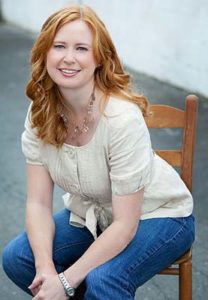Query Letter: Going Beyond the Pitch – Knowing About Who You Are

Betsy Thorpe
I’ve read thousands of query letters. Thousands and thousands.
At the beginning of my career, the queries came from agents. They were polished. They were short. They were resting on the laurels of that agent’s reputation. If a high-powered agent sent a submission to me or my boss, I knew I had to put whatever I was doing on hold, because if I didn’t, I would miss out on acquiring what could be a major book for our publishing house. That book would have an offer by the end of the week, probably within twenty-four hours. Her taste, her reputation, her client roster, was that good.
A dozen years later, I had opened up my own editorial business after the birth of my first child, wanting the kind of flexibility that, unfortunately, was not negotiable back then. I was editing and ghostwriting, and I had sold a wonderful book by a friend’s sister to Tarcher/Penguin. I thought, hmm, Maybe I’ll be an agent. So, I hung my shingle out and the query floodgates opened. I quickly saw how uneducated people were about constructing an effective query. Many were simply lists: “I’ve written three adult novels, four children’s books, and two screenplays. Which would you like to see?” Others, (mostly men) thought that if they compared themselves to God, all bestsellers ever written, and Henry Ford, that I would surely want to see their manuscripts and, by golly, would be a fool not to. (I refer you to Slush Pile Hell for great examples of really awful queries.)
I soon found that agenting was not the right business model for me, took down my shingle, and returned to my editorial services business. But for years afterward I continued to receive thousands of unsolicited query letters, which goes to show: people don’t do their research. Since then, as online resources have educated people, I’ve seen queries improve. But there’s still a long way to go.
Which leads me to what I want to help you with today: that tiny fourth paragraph in your query letter, which is the one about you. Many people don’t include any information about themselves. They just pitch their book, maybe include some comps if we’re lucky, and then walk away. But wait! I say, who even are you? Where do you come from? What brings you to our querying shores?
In this third paragraph, tell us what profession you are in now, or have been. It helps to know, because you could be bringing an important skill set to your work as an author. Teachers, professors, lawyers, salespeople make wonderful presenters and are not shy getting up in front of groups. Those in advertising and marketing and social media know myriad ways to get their book in front of potential readers.
Then there’s participation in writers’ groups, conferences, classes. Why do agents and editors want to know this? We want to see that you’re networking with other writers—those are the folks who are going to be there for you. You’ll need blurbs from faculty you’ve studied with or from fellow writers who have also gotten book deals. Your fellow writer friends will come out to your book signings and help sponsor or throw events for you. “It takes a village” doesn’t just apply to raising children, it relates to building up a writer as well. From your writers’ group to beta readers, from taking classes to getting a professional edit to getting a final proofread, from gaining support on Twitter and Instagram and Facebook, there are numerous steps along the road to getting your book ready for “prime time.” Don’t think that it’s a solitary pursuit––just you and your laptop in a coffee shop. Editors and agents like to see that you’re aware of how important it is to network. Just by adding a few key words to your bio, like “member of the NC Writers’ Network and Charlotte Lit” can be huge.
Finally, where do you live? Think it doesn’t matter? What if an agent grew up in Raleigh, feels alone in New York, and would love to connect with Southern writers? By writing, “graduate of NC State, and living in Charlotte, NC,” you add that little twist, that personal connection, that says to agent, hmm, interesting!
But don’t go crazy beefing up your bio—the personal should not be more than 3 lines of your query letter. It’s not a resume. Choose wisely what you put in. Make it interesting. Make it memorable.
Betsy Thorpe started in book publishing as an assistant at Atheneum, eventually becoming an acquiring and developmental editor while working at HarperCollins, Broadway Books (Random House), Macmillan, and John Wiley & Sons. She then started Betsy Thorpe Literary Services, which helps authors deliver their best work to the public, either through publishers or self-publishing. She is the co-author of numerous non-fiction books, including three featured in the New York Times, and is at work on her second novel, The Writer’s Cottage.
